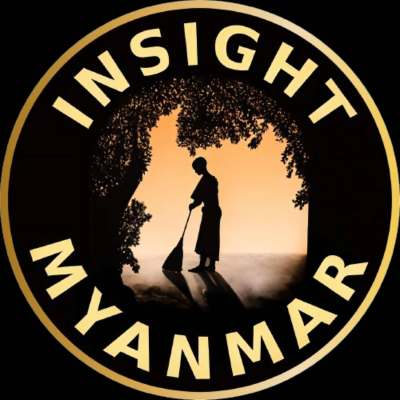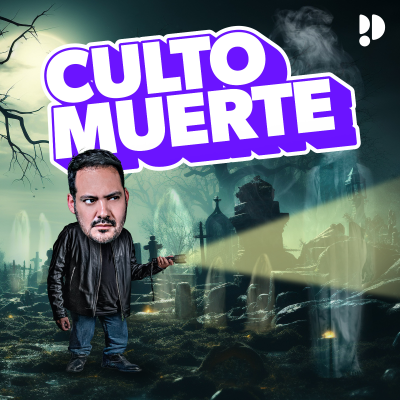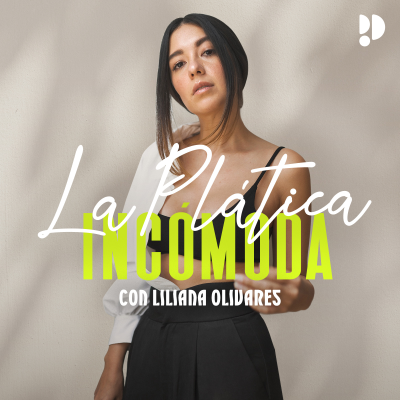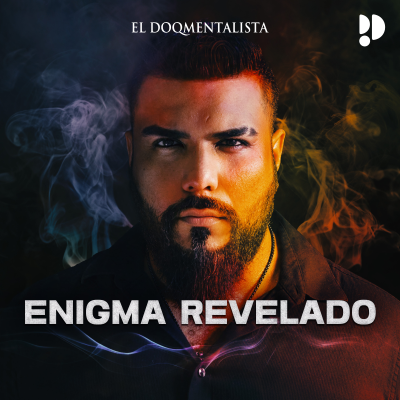
Insight Myanmar
English
News & politics
Limited Offer
2 months for 19 kr.
Then 99 kr. / monthCancel anytime.
- 20 hours of audiobooks / month
- Podcasts only on Podimo
- All free podcasts
About Insight Myanmar
Insight Myanmar is a beacon for those seeking to understand the intricate dynamics of Myanmar. With a commitment to uncovering truth and fostering understanding, the podcast brings together activists, artists, leaders, monastics, and authors to share their first-hand experiences and insights. Each episode delves deep into the struggles, hopes, and resilience of the Burmese people, offering listeners a comprehensive, on-the-ground perspective of the nation's quest for democracy and freedom. And yet, Insight Myanmar is not just a platform for political discourse; it's a sanctuary for spiritual exploration. Our discussions intertwine the struggles for democracy with the deep-rooted meditation traditions of Myanmar, offering a holistic understanding of the nation. We delve into the rich spiritual heritage of the country, tracing the origins of global meditation and mindfulness movements to their roots in Burmese culture. Each episode is a journey through the vibrant landscape of Myanmar's quest for freedom, resilience, and spiritual riches. Join us on this enlightening journey as we amplify the voices that matter most in Myanmar's transformative era.
All episodes
514 episodesA Clockwork Election
Episode #494: “Any one, any countries, any government, who recognize the results of this elections, they are made a fool by the junta!” Myay Thet is a co-founder and leader of a Myanmar nonprofit research organization that operated inside the country before the 2021 coup and now continues its work through pseudonyms and a distributed network of local researchers. She describes an ethnographic approach she calls Myanography, built to document life under dictatorship not through results and statistics but through daily mechanisms of coercion, fear, and forced accommodation. The election, in her account, is not only fraudulent as an outcome, but also as a process that presses people into visible compliance while keeping punishment close and ambiguous. She explains that the election research was conducted with community ethnographers across Myanmar’s states and regions, alongside civil society partners, beginning two months before voting and tracking the three phase structure. She places the work inside a longer ethnographic project that began after the coup, when researchers themselves experienced “a very forceful political rupture” and began recording how oppression reorganizes ordinary life. In that setting, refusal is not a clean political gesture. It is a risk calculation made under the gaze of local authorities and paramilitary auxiliaries embedded in neighborhoods. Myay Thet draws a sharp divide between rejecting the election from outside the country and living inside it, where “the people inside Myanmar have to accommodate this oppression.” Economic collapse intensifies the pressure, and a single arrest or conscription order can destroy a household, making surface compliance feel like a form of protection even among those who privately resist. She describes subtle resistance continuing under the surface, but argues that the election’s real work is to force visible participation through threats, proximity, and bureaucracy rather than persuasion.
Authorization Pending
Episode #493: The entry point was children. During the reform period, as the Myanmar military and other armed groups feared making concessions that would affect the battlefield, international mine action specialists sought common ground by emphasizing civilian protection. "The civilians were the victims, and everybody could see that it was not a good thing to have young children being killed or wounded by the mines," says Pascal Simon, a veteran humanitarian mine action and national capacity development officer. “Everybody wants to save lives and protect civilians, in theory.” In this episode, Simon reflects on his work in Myanmar from 2016 to 2020 and the delicate process of expanding mine action education in contested space. He describes how it was importantto "try to remain open and neutral" in an attempt to focus on prevention rather than blame. Simon says this neutrality allowed mine risk education to be gradually integrated into education and social welfare networks, including in EAO-controlled areas and refugee communities in Thailand. Progress culminated at the 2019 National Mine Action Conference, which brought together civilian ministries, military representatives, international organizations, and ethnic actors, putting "the government in the leading seat" to discuss landmines as a national humanitarian issue. The workshop concluded with the need to establish a National Mine Action Authority. The proposed authority never materialized. When the 2021 military coup abruptly ended the transition period, it dismantled both the coordination infrastructure and the trust that had been built. Throughout the interview, Simon returns to the importance of trust, consistency, and neutrality, engaging with all actors. Engagement with the military, which risks legitimization, remains a critical tension for international organizations. "We have to talk to everybody, at least to try to and, of course, we have to make sure that they’re not using us," Simon says.
An Uphill Battle
Episode #492: Wong Chen, a Malaysian Member of Parliament active in international relations as Malaysia held the ASEAN chair, argues that the Myanmar crisis will not be resolved through moral appeals, symbolic diplomacy, or repeated Western advocacy alone. He maintains that the Myanmar military is far more resilient than many outsiders assume and largely unmoved by external condemnation. In his view, meaningful progress will come only when the junta faces real leverage generated by coordinated internal resistance, supported by pragmatic regional engagement. Without such pressure, he suggests, dialogue risks becoming performative and ultimately serving the military’s interests. Wong Chen situates this argument in Malaysia’s 2025 experience leading ASEAN, a consensus-based organization with a rotating annual chair. When Malaysia assumed the role, he initially felt optimistic, given Prime Minister Anwar Ibrahim’s human rights reputation and ASEAN’s existing Five-Point Consensus on Myanmar. That optimism faded as Malaysia adopted what Wong Chen describes as “pragmatic engagement” with both the junta and resistance groups. While he accepts that communication with all parties is unavoidable, he stresses its asymmetric effects because the junta is not a good-faith actor. For example, junta-controlled media reframes such meetings as “recognition,” even when this is far from the case. He also argues that ASEAN’s institutional design undermines long-term crisis management. Unlike short, bilateral disputes ASEAN has mediated successfully, Myanmar requires sustained, multi-year engagement. Rotating chairs shift operational control to new national bureaucracies, reset personnel and priorities, and prevent the accumulation of institutional memory. The junta exploits these recurring reset points by re-litigating settled issues and using the sheer quantity of engagements to claim legitimacy. Wong Chen therefore calls for a permanent, well-resourced ASEAN mechanism dedicated to Myanmar, one that is not affected despite the changes inherent in the rotating chair. Beyond ASEAN, Wong Chen identifies China as the pivotal external actor, motivated less by ideology than by stability and trade. As long as Myanmar’s opposition remains fragmented, Wong Chen points out that China will usually default to dealing with the junta. He criticizes the National Unity Government for strategic stagnation, internal rigidity, and overreliance on Western moral appeals, urging greater unity, clearer goals, and stronger use of diaspora resources. While cautiously optimistic that geopolitical shifts—potentially involving U.S.–China rivalry and even unconventional actors like Donald Trump—could create openings, Wong Chen ultimately places responsibility on Myanmar’s resistance and opposition to unify around a shared vision and leadership in order to create the leverage needed to force a resolution. External actors can assist, he says, but “you have to do it yourself.”
The Weight of Survival
Episode #491: The third episode in our five-part series features conversations recorded at the 16th International Burma Studies Conference at Northern Illinois University, where scholars, students, researchers, and practitioners gathered around the theme Dealing with Legacies in Burma. Held amid ongoing political turmoil and humanitarian crisis, the conference created a rare space for open dialogue and shared reflection. Insight Myanmar was invited into this environment to record conversations with a wide range of attendees, produced in collaboration with NIU’s Center for Southeast Asian Studies. We hope these episodes bring listeners into the atmosphere of the gathering and into conversation with the people who continue to shape the field today. Naw Moo Moo Paw, a PhD candidate at UMass Lowell, grounds her research on disability caused by political violence during her own upbringing. Raised in the conflict-ridden Bago region amid landmines, forced labor, and death, she witnessed numerous civilian injuries, including of her own father. She completed a master’s in Japan, where the quiet environment triggered long-suppressed PTSD stemming from her childhood experiences. Her current research examines post-injury political participation, social inclusion, and cultural interpretations of disability. She emphasizes that disabled people in Myanmar seek acceptance and community support more than financial aid and warns that unaddressed trauma may lead to future societal instability. Aye Minn discusses his work with an online university in Myanmar, which was formed after the 2021 coup to provide a learning space for teachers and students who left the state system. He characterizes his work as combining parahita, the Buddhist principle of acting for the good of others with atahita, or acting for one’s own benefit… which Burmese culture often views negatively. He argues that self-improvement is inseparable from service, especially in a country where opportunity is rare. The university now operates largely on unpaid volunteer labor, reflecting Burmese society’s long tradition of service and its scarcity of financial resources. He champions equity, urging Western scholars to recognize their privilege and consider more culturally adaptive academic standards. As he puts it, “We should bring more scholars who are underprivileged onto the table.” Grace, a master’s student researching rare earth mining in Kachin State, explains that these minerals are essential for global technologies and green energy, but their extraction causes severe environmental and health damage. In northern Myanmar, communities face rising cases of skin disease, respiratory problems, and digestive disorders, intensified by post-coup instability. After restricting domestic mining, China shifted to Myanmar, where a complex mix of militias, the military regime, and the Kachin Independence Organization control territory. China pressures these groups to maintain mineral supply chains while Chinese investors conduct mining with little oversight, leaving toxic waste behind. Local resistance exists through petitions and faith-based organizing, but militarization and poverty limit effectiveness. Many villagers depend on mining for basic survival, reflecting longstanding resource-curse dynamics. She references recent reports of U.S. interest in sourcing rare earths from here, which could be of interest to Kachin leaders as it offers them a lifeline away from China.
Reckoning with the Dhamma
Episode #490: Matt Walton, a political theorist and scholar of Buddhism and politics in Myanmar, and author the acclaimed Buddhism, Politics and Political Thought in Myanmar, argues that Burmese political life cannot be understood through secular or Western democratic frameworks alone. He contends that struggles over democracy, authority, nationalism, and pluralism in the country unfold within a shared Theravāda Buddhist moral universe whose internal logics remain consistent even as they produce sharply divergent political outcomes. Ethical life, political legitimacy, and social order are deeply embedded in Buddhist moral reasoning, shaping how political ideas are articulated and contested. In his undergraduate years, he developed an interest in meditation, which took shape during his first visit to Myanmar. Initially going as a backpacker, he joined a demanding 21-day vipassanāretreat in the Mahāsi lineage in the Sagaing Hills. That retreat proved pivotal for him both as practitioner and professionally, sparking his interest how embodied Burmese Buddhism plays out in social, cultural and political spheres. Subsequent travels through Myanmar helped crystalize his awareness that democratic aspirations and rights discourse in the region operate within Buddhist concepts of causality, responsibility, and ethical conduct rather than liberal political theory. He devoted himself to the study of Burmese language, Buddhist philosophy, and political thought. Central to Walton’s analysis is the relationship between lokī, the mundane sphere, and lokuttara, the supramundane orientation toward insight and liberation. These are not opposing realms but relational categories that structure political reasoning. Burmese discourse recognizes that ethical practice depends on material conditions, while also warning that excessive supramundane focus can undermine worldly governance. Political legitimacy emerges from negotiating this tension. Walton shows how Buddhist texts can generate competing political interpretations, supporting both hierarchical authority and participatory responsibility. Across history—from U Nu and Aung San to Ledi Sayadaw, Buddhist nationalism, and contemporary pluralist debates—Walton emphasizes that the same moral universe underlies empowerment and violence alike. Understanding this coherence, he insists, does not imply moral endorsement but is essential for grappling with Myanmar’s political crisis and imagining more inclusive futures. Walton cautions against assuming secularism would offer a neutral alternative, noting that secular governance elsewhere remains shaped by Christian histories, and instead calls for explicit, critical engagement with Buddhist moral reasoning to identify resources for genuinely inclusive coexistence.
Choose your subscription
Limited Offer
Premium
20 hours of audiobooks
Podcasts only on Podimo
All free podcasts
Cancel anytime
2 months for 19 kr.
Then 99 kr. / month
Premium Plus
Unlimited audiobooks
Podcasts only on Podimo
All free podcasts
Cancel anytime
Start 7 days free trial
Then 129 kr. / month
2 months for 19 kr. Then 99 kr. / month. Cancel anytime.





































